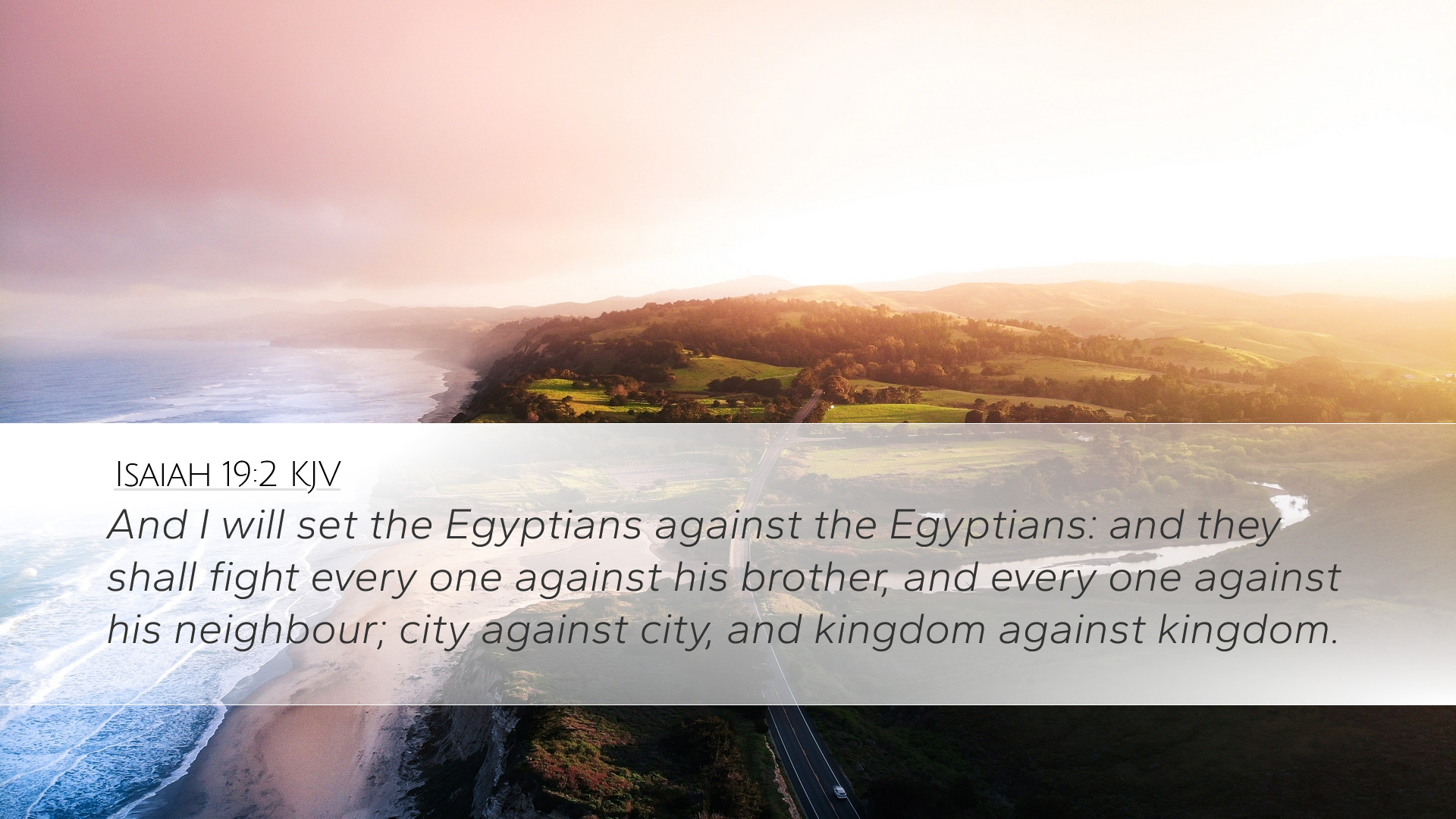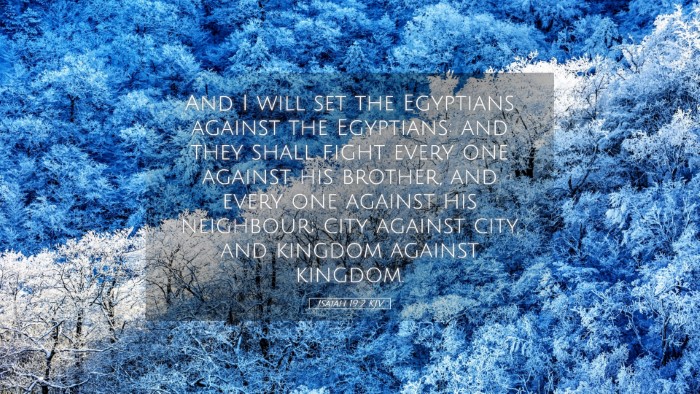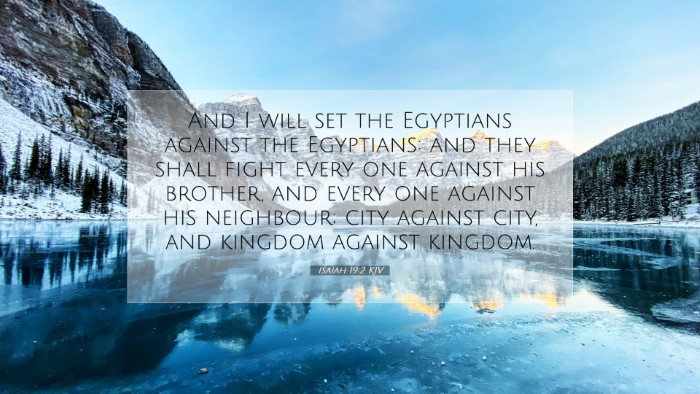Isaiah 19:2 - A Commentary
Verse Text: "And I will set the Egyptians against the Egyptians: and they shall fight every one against his brother, and every one against his neighbour; city against city, and kingdom against kingdom."
Introduction
The verse Isaiah 19:2 portrays a profound insight into the social and political turmoil that befell Egypt, foreshadowing the moral decay within the nation. This analysis draws upon the works of notable public domain commentaries to explore its theological implications and contextual significance.
Context of Isaiah 19
In the broader context of Isaiah, this chapter addresses the judgment against Egypt, one of Israel's historical adversaries. The prophet Isaiah delivers a message of impending strife and disorder, symbolizing not just political instability, but also spiritual desolation.
Political Turmoil
The declaration of "Egyptians against Egyptians" illuminates a time when internal conflicts would emerge. As noted by Matthew Henry, this signifies a lack of unity and brotherhood within their very own ranks, leading them to civil strife. Historians affirm this prophecy resonated with the historical events during which Egypt faced various internal challenges, particularly during the Assyrian invasions and later.
Theological Implications
Albert Barnes emphasizes that these conflicts are a divine judgment against a nation that had turned from God. The fracturing of community bonds is indicative not only of societal breakdown but also of the judgment rendered against a nation that forsakes divine authority.
Interpretative Insights
-
Divine Sovereignty: The phrase "I will set" indicates God's active role in the unfolding events, emphasizing divine sovereignty over nations. God orchestrates the outcomes of human affairs, a central theme in Isaiah's messages.
-
Consequences of Idolatry: Adam Clarke asserts that Egypt's reliance on false gods would metaphorically turn them against one another. Idolatry breeds disunity and conflict within societies, a recurring theme in the prophet's discourse.
-
Unity and Division: The passage explores the tensions between unity and division within human communities. As pointed out by Henry, disunity among Egyptians serves as both judgment for their idol worship and a warning for future nations.
Literary Features
The vivid imagery of conflict provided in Isaiah 19:2 functions as a device to capture attention and evoke emotional response, which is characteristic of Isaiah's prophetic style. The repetition of “against” reinforces the inescapable nature of this divine pronouncement.
Historical Context
The historical context of Isaiah's time emphasizes the precarious position of Egypt amidst rising powers, such as Assyria. Barnes elaborates that during Isaiah's prophetic ministry, Egypt's strength was waning, leading to increased infighting as various factions sought control.
Applications for Contemporary Readers
This verse calls for reflection on the state of community and unity within nations today. It serves as a reminder that the abandonment of divine principles can yield destructive consequences, both personally and collectively.
Challenges in Unity
Modern societies face similar challenges of division based on political, ethnic, and ideological lines. The insights from Isaiah can challenge pastors, theologians, and laypersons to consider the implications of their national identity in light of divine expectation.
Call to Action
For Christians, this passage acts as an exhortation to embody the unity of the Spirit within the church, actively pursuing reconciliation and peace as an antidote to societal discord.
Conclusion
Isaiah 19:2 serves as a profound commentary on the human condition, the consequences of idolatry, and the sovereign hand of God in human affairs. It serves both as a warning and an invitation to seek unity under God's lordship.
In the light of biblical history and theology, scholars and students are encouraged to delve deeper into the dimensions of this prophecy, allowing it to inform their understanding of contemporary societal issues.


